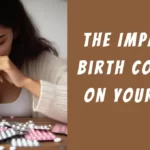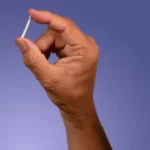
Deciding to stop using birth control is a significant step for individuals or couples who are ready to start a family. However, many wonder about the chances of getting pregnant after discontinuing birth control methods. While the answer varies from person to person, it’s essential to understand the factors that can influence fertility and conception. In this article, we will explore the different aspects of what are the chances of getting pregnant after stopping birth control and provide valuable insights to help you navigate this exciting journey.
Related: Unbelievable! You Can Get Pregnant with Tubes Tied
What are the Chances of Getting Pregnant after Stopping Birth Control?
When it comes to the question of what are the chances of getting pregnant after stopping birth control, it’s important to remember that every individual’s body is unique, and there is no one-size-fits-all answer. However, here are a few factors that can affect the chances of conceiving:
Type of Birth Control Method
The type of birth control method used plays a role in determining the time it takes for fertility to return to normal. Hormonal methods like the pill, patch, or injection may take a few months for the body to adjust, while non-hormonal methods like condoms or diaphragms do not have a significant impact on fertility.
Age
Age is a crucial factor in determining fertility. Generally, women in their 20s and early 30s have a higher chance of getting pregnant after stopping birth control compared to women in their late 30s or 40s. As a woman ages, her fertility gradually declines, making conception more challenging.
Menstrual Cycle Regularity
The regularity of a woman’s menstrual cycle plays a vital role in conception. Women with regular cycles have a better chance of predicting their fertile window and timing intercourse accordingly. Irregular cycles can make it more difficult to determine the optimal time for conception.
Health and Lifestyle Factors
Overall health and lifestyle choices can impact fertility. Factors such as smoking, excessive alcohol consumption, obesity, and certain medical conditions may affect the chances of conceiving after stopping birth control. Maintaining a healthy lifestyle and seeking medical advice if needed can increase the likelihood of successful conception.
Individual Variations
Each person’s body responds differently to the cessation of birth control. Some individuals may resume regular ovulation and conceive soon after stopping, while others may experience a delay in fertility restoration. It’s essential to be patient and give your body time to adjust.
Related:Can You Rely on a Negative Pregnancy Test?
Do You Know? According to a systematic review and meta-analysis, 83.1% of women who discontinued contraception became pregnant within the first 12 months
Factors Influencing Conception After Stopping Birth Control

While the chances of getting pregnant after stopping birth control depend on various factors, understanding the key influencers can provide clarity on what to expect:
1. Hormonal Birth Control Methods
a) Oral Contraceptives (The Pill)
After discontinuing the pill, some individuals may experience a quick return to fertility, while others may take a few months for their menstrual cycles to regulate. It’s normal for the body to need some time to adjust to the hormonal changes.
b) Injectable Contraceptives (Depo-Provera)
The effects of injectable contraceptives can linger for several months after the last injection. It may take several months to a year for regular ovulation to resume.
c) Hormonal Patch and Vaginal Ring
Similar to oral contraceptives, the patch and vaginal ring can cause a temporary delay in fertility restoration. It’s recommended to consult a healthcare provider for specific guidance based on the chosen method.
2. Barrier Methods
a) Condoms
Barrier methods like condoms do not have a direct impact on fertility. Fertility should return to normal immediately after discontinuing condom use.
b) Diaphragms and Cervical Caps
Barrier methods like diaphragms and cervical caps do not affect fertility. Fertility should return to normal immediately after discontinuing their use.
3. Intrauterine Devices (IUDs)
a) Hormonal IUDs
After removing a hormonal IUD, fertility should return to normal relatively quickly. Some individuals may conceive within a few weeks, while others may take a few months.
b) Copper IUDs
Copper IUDs do not contain hormones and do not affect fertility. Fertility should return to normal immediately after removal.
4. Fertility Awareness Methods
a) Tracking Basal Body Temperature
Individuals who use basal body temperature tracking for fertility awareness may have a better understanding of their ovulation patterns. After stopping birth control, it may take a few cycles to establish regularity and accurately predict the fertile window.
b) Monitoring Cervical Mucus
Cervical mucus monitoring can help identify changes in the cervical fluid that occur during ovulation. After discontinuing birth control, it may take some time for the cervical mucus patterns to normalize, impacting the accuracy of fertility predictions.
5. Personal Factors
a) Overall Health
General health conditions, such as polycystic ovary syndrome (PCOS) or endometriosis, can affect fertility. It’s crucial to seek medical advice if you have underlying health concerns that may impact conception.
b) Stress and Emotional Well-being
High levels of stress and emotional turmoil can affect hormonal balance and interfere with fertility. Maintaining a healthy emotional state and finding ways to manage stress can positively impact your chances of conceiving.
Related: How Long Does It Take To Lose Weight After Stopping Birth Control?
Effects of Birth Control Methods on Fertility and Time for Normal Restoration (Table)
| Birth Control Method | Impact on Fertility | Time for Fertility to Return to Normal |
|---|---|---|
| Hormonal Methods | ||
| – Oral Contraceptives (The Pill) | Temporary delay in fertility restoration; may take a few months for menstrual cycles to regulate | Varies, may take a few months |
| – Injectable Contraceptives (Depo-Provera) | Effects can linger for several months after the last injection; may take several months to a year for regular ovulation to resume | Varies, may take several months to a year |
| – Hormonal Patch and Vaginal Ring | Temporary delay in fertility restoration; consult healthcare provider for specific guidance | Varies, consult healthcare provider |
| Barrier Methods | ||
| – Condoms | No direct impact on fertility; fertility returns to normal immediately after discontinuing use | Immediate |
| – Diaphragms and Cervical Caps | No impact on fertility; fertility returns to normal immediately after discontinuing use | Immediate |
| Intrauterine Devices (IUDs) | ||
| – Hormonal IUDs | Fertility returns to normal relatively quickly after removal; conception may occur within a few weeks to months | Varies, may take a few weeks to months |
| – Copper IUDs | No impact on fertility; fertility returns to normal immediately after removal | Immediate |
| Fertility Awareness Methods | ||
| – Tracking Basal Body Temperature | May take a few cycles to establish regularity and accurately predict the fertile window after stopping birth control | Varies, may take a few cycles |
| – Monitoring Cervical Mucus | May take time for cervical mucus patterns to normalize, impacting fertility predictions after discontinuing birth control | Varies, may take some time |
| Personal Factors | ||
| – Overall Health | Underlying health conditions (e.g., PCOS, endometriosis) can affect fertility; seek medical advice if necessary | Varies, seek medical advice |
| – Stress and Emotional Well-being | High stress levels and emotional turmoil can affect fertility; maintaining a healthy emotional state and managing stress positively impact chances of conceiving | Varies, manage stress and emotional well-being |
Related: How to Get Birth Control Online? (Detailed Review 2023)
Does Fertility not Guarantee Pregnancy?
Getting pregnant is not guaranteed even if you have fertility. It’s important to understand that the timing of pregnancy can vary for different individuals. While some people are able to conceive soon after their fertility returns, others may face challenges and try for an extended period of time.
It’s crucial to note that your ability to conceive is no longer influenced by previous use of birth control. Factors such as your age, overall health, and lifestyle choices can all impact your chances of getting pregnant. Additionally, you might encounter difficulties in conceiving, known as infertility.
After discontinuing the use of birth control, it’s normal to have concerns about your fertility. If you experience any of the following, it’s advisable to consult with your healthcare provider:
- Your menstrual period does not resume within three months.
- The length of your menstrual cycle becomes irregular.
- You notice significant changes in the duration or heaviness of your bleeding.
- You are under the age of 35 and have been actively trying to conceive for 12 months without success.
- You are over the age of 35 and have been trying to conceive for six months without success.
How Can You Tell If You’re Ovulating?
There are several ways to determine if you’re ovulating. Here are some common methods:
- Tracking Basal Body Temperature (BBT): Your basal body temperature slightly rises after ovulation. By taking your temperature with a specialized thermometer every morning before getting out of bed, you can detect this shift and identify your fertile window.
- Monitoring Cervical Mucus: Your cervical mucus changes throughout your menstrual cycle. During ovulation, it becomes clear, slippery, and stretchy, resembling raw egg whites. Keeping track of these changes can help indicate when you’re ovulating.
- Using Ovulation Predictor Kits (OPKs): These kits detect the presence of luteinizing hormone (LH) in your urine, which surges 24-48 hours before ovulation. By following the instructions provided with the kit, you can identify your LH surge and predict ovulation.
- Tracking Menstrual Cycle: If your menstrual cycle is regular, ovulation typically occurs around 14 days before the start of your next period. By monitoring the length of your cycle and counting backward, you can estimate when you’re likely to ovulate.
- Seeking Physical Signs: Some women experience mild pelvic pain or discomfort on one side of their lower abdomen during ovulation. Paying attention to these physical signs may help determine when you’re ovulating.
What are the Signs and Symptoms of Ovulation?
The signs and symptoms of ovulation can vary from woman to woman, but here are some common indicators:
- Changes in cervical mucus: During ovulation, cervical mucus becomes clear, slippery, and stretchy, resembling the consistency of raw egg whites. This change is associated with increased fertility.
- Basal body temperature (BBT) rise: After ovulation, a woman’s basal body temperature slightly increases due to hormonal changes. Tracking your BBT with a specialized thermometer can help detect this temperature shift.
- Ovulation pain or Mittelschmerz: Some women experience mild pelvic pain or discomfort on one side of the lower abdomen during ovulation. This pain is known as Mittelschmerz and can last a few minutes to a few hours.
- Breast tenderness: Hormonal changes during ovulation can cause breast sensitivity or tenderness for some women.
- Increased sex drive: Some women may experience an increase in libido or sexual desire during ovulation.
- Light spotting: A small number of women may notice light spotting or slight bleeding around the time of ovulation.
What is the Recommended Period of Time to Discontinue the Use of Birth Control Before Attempting to Conceive?
Most types of birth control do not require a waiting period before trying to get pregnant. It’s possible to conceive within a month or two of stopping most types of birth control, and most women are able to get pregnant within a year of stopping the pill. However, some types of birth control may make it harder to get pregnant right away, and it’s a good idea to talk to your doctor if you’ve been trying to get pregnant for 6 months or longer without success. If you don’t get a period within the first few weeks or you’re spotting on and off, take a pregnancy test.
Related: When to Stop Birth Control Pills Before Pregnancy?
What is the Likelihood of Becoming Pregnant After Stopping Birth Control?
The time it takes to conceive after stopping birth control can be influenced by factors such as the type of method used, the duration for the menstrual cycle to resume, personal health, partner’s fertility, and other individual factors.
Age also plays a role, with the likelihood of pregnancy decreasing as women get older. Based on information from the American College of Obstetricians and Gynecologists (ACOG), the chances of pregnancy during any given menstrual cycle are approximately 1 in 4 for couples in their 20s and early 30s. However, by the age of 40, the likelihood of pregnancy decreases, and the chances are closer to 1 in 10.
Research suggests that approximately 83% of women who discontinue hormonal birth control can conceive within the first year. It’s important to recognize that each situation is unique, and it’s normal for the process to take longer than expected.
Are there any Risk Factors or Concerns?
According to Andrea Gekas, NP, CNM, using birth control generally does not have long-term effects on fertility. However, there are other factors that can influence the time it takes to conceive after stopping birth control. These factors include common fertility issues like hormonal imbalances, thyroid problems, reproductive organ issues, as well as health conditions such as endometriosis and polycystic ovarian syndrome, which can make conception more challenging. It’s important to note that fertility is influenced by both partners, and problems with sperm or sperm production in your partner can also contribute to fertility issues.
Infertility is typically defined as the inability to conceive after trying for 12 months. The American College of Obstetricians and Gynecologists (ACOG) recommends that if you’re over the age of 35 and experiencing difficulty conceiving, you should visit a healthcare provider after 6 months of trying. If you’re over 40, it’s advisable to see your provider even sooner.
Related: 10+ Ways to Boost Your Fertility
When to Consult a Doctor?
If you have been actively trying to conceive without success after stopping your birth control, it is generally recommended to contact your doctor if one year has passed. However, if you are over 35 years old, have irregular periods, known fertility issues, or a history of reproductive disorders, it is advisable to seek medical advice earlier. It’s always a good idea to consult with a healthcare professional if you have concerns about fertility or any unusual symptoms.
Conclusion
So the answer to the question, “What are the chances of getting pregnant after stopping birth control?” depends on various factors, including the type of birth control used, age, regularity of menstrual cycles, health, and lifestyle choices. It’s important to remember that every individual’s journey is unique, and it may take time for fertility to return to normal. Patience, maintaining a healthy lifestyle, and seeking medical advice when needed can increase the likelihood of successful conception. If you have concerns or questions, consulting a healthcare provider is always a wise decision. Embrace this exciting chapter in your life with optimism and enjoy the journey to parenthood!
Frequently Asked Questions (FAQs)
How long does it take to get Pregnant after stopping Birth Control?
There is no definitive answer as it varies from person to person. It can take a few weeks to several months for fertility to return to normal after stopping birth control.
Is it possible to get Pregnant immediately after stopping Birth Control?
Yes, it is possible to conceive immediately after stopping birth control, especially if using non-hormonal methods like condoms or barrier methods.
Do the chances of getting Pregnant decrease with Age?
Yes, fertility gradually declines with age, so the chances of getting pregnant decrease as a person gets older.
Should I consult a Healthcare Provider after discontinuing Birth Control?
It is advisable to consult a healthcare provider after discontinuing birth control, especially if you have concerns or if you were using long-acting methods like injections or IUDs.
Can Irregular Periods affect Fertility after stopping Birth Control?
Irregular periods can make it more challenging to predict ovulation and conceive. Monitoring your menstrual cycles and seeking medical advice if irregularities persist can be beneficial.
What should I do if I am having difficulty getting Pregnant after stopping Birth Control?
If you are having trouble conceiving after stopping birth control, it is recommended to consult a fertility specialist who can assess your situation and provide guidance and assistance.












